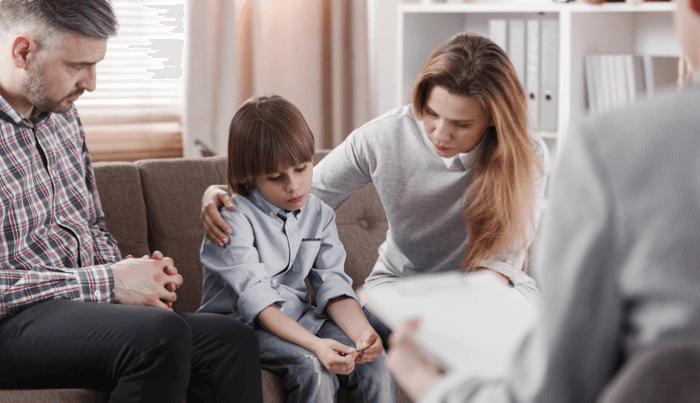Surviving Child Loss: Essential Tips for Parents
As you endure the pain of losing a child, remember to allow yourself to grieve in your own way, without rushing. Express your emotions through talking, writing, or creative outlets. Seek support from loved ones or join a support group to share the burden. Prioritize self-care to find moments of peace amidst the storm. Remember, the healing process is not linear, so be patient with yourself. By embracing these essential tips, you can begin to navigate this challenging journey with resilience and compassion. Gather strength from those who understand, and embrace the hope that lies within each moment.
Key Takeaways
- Allow yourself to grieve at your pace.
- Seek support from loved ones and community resources.
- Consider therapy for personalized coping strategies.
- Embrace self-compassion practices for well-being.
- Find ways to honor your child’s memory for healing.
Processing the Grief

When experiencing the loss of a child, processing the overwhelming grief is an essential step towards healing and finding moments of peace in the midst of sorrow. Coping strategies can help you navigate this challenging journey.
Allow yourself to grieve in your way and timeframe, as everyone copes differently. Express your emotions, whether through talking to a trusted friend or counselor, writing in a journal, or engaging in creative outlets. Remind yourself that it’s okay to feel a range of emotions, from anger and guilt to profound sadness.
The healing process isn’t linear; it involves ups and downs, good days and bad days. Be patient and compassionate with yourself during this time. Remember that healing doesn’t mean forgetting; it means finding ways to carry your child’s memory with you while continuing to live your life.
Seek support from others who understand or join a support group. Taking care of your mental and emotional well-being is vital in this healing process.
Prioritizing Self-Care
You may find it challenging to care for yourself amidst the overwhelming grief of losing a child. However, remember that your mental health matters; seeking therapy can provide a safe space to navigate your emotions.
Embracing self-compassion practices can help you nurture your well-being during this difficult time.
Mental Health Support
Looking after your mental health is essential as you navigate the overwhelming grief of losing a child. Coping strategies are indispensable during this challenging time. It’s imperative to give yourself permission to grieve, to feel the emotions, and to seek support.
Prioritize your emotional well-being by engaging in activities that bring you comfort and peace. Surround yourself with loved ones who understand your pain and offer a listening ear. Peer support can be incredibly beneficial; connecting with others who’ve experienced similar loss can provide a sense of community and understanding that’s hard to find elsewhere.
Additionally, utilize community resources such as support groups or online forums where you can share your feelings and receive empathy from those who’ve walked a similar path. Remember, it’s okay to not be okay and seeking mental health support is a sign of strength, not weakness.
Taking care of your mental health is a crucial step towards healing and finding moments of peace amidst the storm.
Seeking Therapy Options
As you navigate the overwhelming grief of losing a child, considering therapy options can be an important step in prioritizing your self-care. Group therapy and individual counseling offer spaces where you can share your experiences, connect with others who understand your pain, and receive professional guidance tailored to your needs.
In group therapy, you may find solace in the shared journey of healing, while individual counseling can provide you with personalized support and coping strategies.
Additionally, exploring online resources can be a convenient way to access therapeutic tools and information from the comfort of your home. Retreats specifically designed for parents who’ve experienced child loss can offer a supportive environment for processing your emotions and connecting with others facing similar challenges.
Self-Compassion Practices
Embracing self-compassion practices is an essential aspect of prioritizing self-care while managing the profound grief of losing a child. During this challenging time, it’s vital to be gentle with yourself and nurture your emotional well-being.
Engaging in mindfulness practices can help you stay present and process your emotions in a healthy way. Taking time for healing rituals, such as journaling or creating a memory box, can provide comfort and a sense of connection to your lost child.
Consider joining compassion circles, where you can share your experiences with others who understand your pain and offer support without judgment. These circles can create a safe space for you to express your feelings openly and feel heard.
Additionally, attending self-care retreats designed for parents coping with child loss can offer you a chance to focus on your healing journey and connect with others facing similar challenges. Remember, prioritizing self-compassion isn’t selfish; it’s an essential step towards finding peace and healing after such a profound loss.
Honoring Your Child’s Memory
As you navigate the journey of honoring your child’s memory, remember that there are countless ways to pay tribute to their life.
From creating memory books to organizing memorial events, finding ways to keep their spirit alive can provide comfort and solace.
Sharing stories with loved ones can also be a beautiful way to reminisce about the precious moments you shared with your child.

Memory-Tribute Ideas
Honoring your child’s memory through thoughtful and meaningful tributes can provide comfort and solace during this difficult time of loss. Creating creative keepsakes like memory boxes filled with their favorite toys, drawings, and photographs can serve as tangible reminders of the love and joy your child brought into your life.
Hosting memorial events, such as a tree planting ceremony in their favorite park or a candlelight vigil with family and friends, can be a beautiful way to honor their life and create lasting memories.
Consider crafting a memory quilt using your child’s clothing or creating a scrapbook filled with special moments shared together. These tangible tributes can offer a sense of connection and closeness even after your child is no longer physically present.
Additionally, planting a tree in their memory or dedicating a bench in a park they loved can provide a peaceful space for reflection and remembrance. Finding unique ways to honor your child’s memory can help you navigate the grief journey and keep their spirit alive in your heart.
Sharing Stories Together
Reflecting on cherished memories and sharing stories together can be a heartfelt way to honor and keep alive the memory of your beloved child. In the midst of profound loss, healing through the act of recounting precious moments can offer solace and a sense of connection to the past.
By bonding over shared experiences, you can find comfort in the familiarity of your child’s presence, even in their physical absence.
Gathering with family and friends to reminisce about your child can create a space where love and laughter intersect with grief, allowing for a range of emotions to be expressed openly. These shared stories serve as a tribute to the impact your child had on those around them, keeping their spirit alive in the collective memory.
Through storytelling, you not only honor your child’s legacy but also find support and compassion in the shared experience of loss. Embrace the healing power of coming together to celebrate the life that continues to shape and inspire you.
Seeking Professional Help
When dealing with the profound grief of child loss, it’s essential to explore seeking professional help to navigate through this challenging journey. Counseling resources and therapy benefits can offer invaluable support during this incredibly difficult time. Professional therapists and counselors are equipped with the expertise to help you work through your emotions, process your grief, and develop coping strategies to manage your loss.
Therapy provides a safe space for you to express your feelings openly and without judgment. Through talking with a trained professional, you can gain insights into your grief, learn healthy ways to cope, and find comfort in sharing your experiences.
Additionally, counseling resources often include specialized support groups where you can connect with others who are going through similar experiences, fostering a sense of community and understanding.
Building a Support System

Establishing a strong support system around you is crucial in navigating the challenging journey of child loss. Reach out to others who understand your pain and can offer empathy and comfort during this difficult time.
Consider joining online communities or local groups where you can connect with individuals who’ve gone through similar experiences. These platforms can provide a sense of belonging and a safe space to share your feelings without judgment.
Additionally, peer counseling and therapy groups can be beneficial in helping you navigate the complex emotions that come with child loss. Talking to others who’ve firsthand knowledge of grief can offer valuable insights and coping strategies.
These support systems can provide a sense of validation for your feelings and offer practical guidance on how to cope with the challenges that arise.
Finding Meaning in the Loss
Discovering meaning in the loss of your child can be a profound and transformative journey that offers insight and healing along the way. While the pain of losing a child may seem insurmountable, finding purpose amidst the grief can bring a sense of spiritual healing and a renewed outlook on life.
In your quest to find meaning in your child’s passing, consider reflecting on the impact they had on your life and the lives of others. Embracing the memories you shared and the lessons learned through your child’s presence can help you navigate through the darkness of loss towards a path of light and understanding.
Finding purpose in the loss may involve honoring your child’s memory through acts of kindness, creating a legacy in their name, or advocating for causes that were important to them. These actions not only keep their spirit alive but also provide a sense of fulfillment and connection to something greater than yourself.
As you venture on this journey of finding meaning, remember that it’s okay to seek support from loved ones, therapists, or support groups. Your resilience and strength in the face of such a profound loss are a confirmation of the love you carry for your child.
Navigating Family Dynamics

Supporting one another through the complexities of family dynamics after the loss of a child can be a challenging yet essential aspect of the healing process. Sibling relationships may undergo significant changes as each child copes with their grief differently. Encourage open communication and provide a safe space for siblings to express their emotions, fears, and concerns. Reassure them that their feelings are valid and that you’re there to support them through this difficult time.
Extended family dynamics can also be affected by the loss of a child. Understand that each family member may grieve in their unique way, and this can sometimes lead to misunderstandings or tensions. Try to be patient and empathetic towards one another, recognizing that everyone is maneuvering their pain differently.
Communicate openly with extended family members, sharing your feelings and listening to theirs. By fostering a sense of mutual support and understanding, you can help navigate these challenging family dynamics together.
Embracing Moments of Joy
In the midst of grief, remember to embrace the fleeting moments of joy that can bring light to your darkest days. While maneuvering the overwhelming sorrow of losing a child, it’s essential to allow yourself to find solace in these small pockets of happiness.
Creating new, joyful memories doesn’t diminish the love you hold for your child but rather honors their legacy by cherishing the beauty that still exists in life.
Celebrate life moments, no matter how brief or seemingly insignificant they may be. Whether it’s a smile shared with a friend, a peaceful moment in nature, or a fond memory that brings a fleeting sense of warmth, these instances are like gentle whispers of hope in the midst of despair.
Frequently Asked Questions
How Can I Cope With the Guilt of Moving On?
It’s natural to struggle with guilt when moving on after loss. Remember, finding closure doesn’t mean forgetting. Allow yourself the space for self-forgiveness. Embrace the journey of healing, honoring your past while embracing the present.
Is It Common to Experience Physical Symptoms of Grief?
When grieving, it’s common to experience physical symptoms like fatigue, headaches, or stomach pains. Coping strategies, such as exercise and self-care, can help manage these manifestations. Seeking support from loved ones or a therapist can ease grief symptoms.
What Are Some Creative Ways to Honor My Child’s Memory?
To honor your child’s memory, consider organizing memorial fundraisers to support causes they cared about. You could also get tribute tattoos with meaningful symbols or phrases that remind you of your precious child.
How Do I Know When It’s Time to Seek Professional Help?
When you’re feeling overwhelmed, lost, or unable to cope with the pain of your loss, it’s time to seek professional help. Support groups, therapy can provide the signs and intervention needed for healing and strength.
What Can I Do if My Family Members Don’t Understand My Grief?
When your family members don’t understand your grief, it’s important to communicate your feelings honestly and set boundaries. Seek support from therapy or support groups where you can connect with people who can empathize with your experience.
Conclusion
Remember, you aren’t alone in your journey of surviving child loss. It’s okay to feel overwhelmed, to seek help, and to take care of yourself.
By processing your grief, honoring your child’s memory, and finding moments of joy, you’re taking important steps towards healing.
Lean on your support system, embrace the love around you, and remember that it’s okay to not be okay.
You’re strong, you’re loved, and you’ll get through this.

Hey there! 👋 I’m a proud mom and passionate writer, sharing my parenting journey. 📝 Join me as I navigate the ups and downs of motherhood, offering tips, advice, and a sprinkle of humor along the way. 🌟







